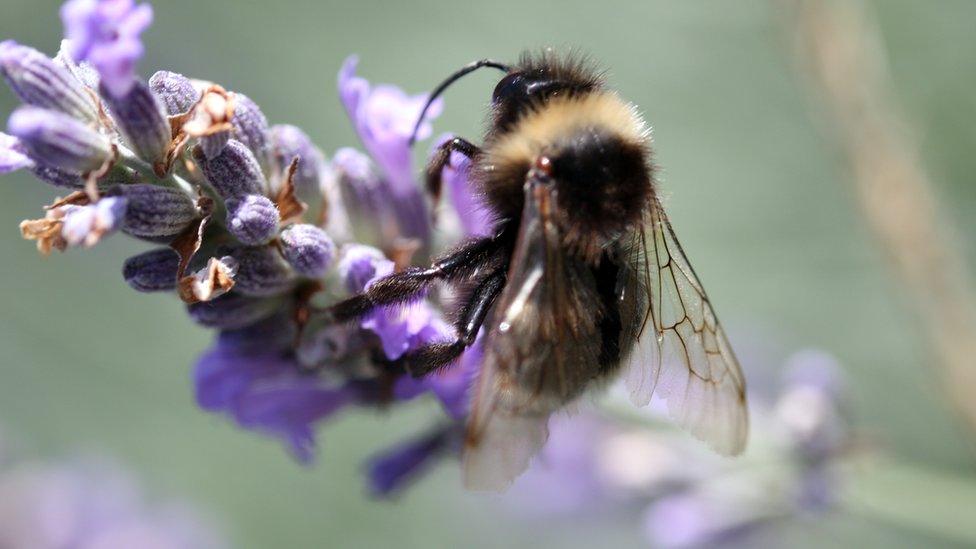Honeybee brains could bring AI breakthrough, say Sheffield experts
- Published

Bees are among the most efficient navigators in the natural world, experts say
South Yorkshire scientists are seeking to harness the power of bee brains in an effort to improve artificial intelligence (AI) systems and devices.
Honeybees are believed to excel when it comes to quick decision-making, with brains only the size of a sesame seed, University of Sheffield scientists say.
The experts examined how bees decide which flowers to explore for nectar.
Study leader Dr HaDi MaBouDi said the aim was to develop skilled machines "that can think like bees".
In the study, researchers trained 20 bees to recognise five different coloured flowers. Blue flowers contained sugar syrup, green flowers contained bitter tonic water and the remaining colours sometimes had glucose.
The bees were then let into a custom-built garden where flowers contained only distilled water to see how they performed.
The experiment found they made a bee-line for flowers they thought would have food - landing there in an average of 0.6 seconds - and were just as quick to avoid flowers they thought would not have food.
'Remarkable decision-making'
Dr MaBouDi, of Sheffield's Department of Computer Science, who worked alongside counterparts at Macquarie University in Sydney, said: "What we've done in this study is reveal the underlying mechanisms which drive these remarkable decision-making capabilities.
"We can now use these to design better, more robust and risk-averse robots and autonomous machines that can think like bees - some of the most efficient navigators in the natural world."
Scientists say the research , externalwill allow developers to adapt the findings to refine their AI-powered products.

Follow BBC Yorkshire on Facebook, external, Twitter, external and Instagram, external. Send your story ideas to yorkslincs.news@bbc.co.uk, external.